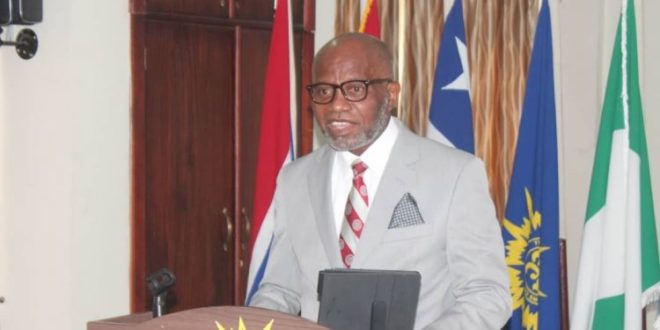In its quest to curb examination malpractice, the West African Examination Council (WAEC) is set to embed a QR Code in each question paper of candidates during examinations.
Speaking to Citi News on the sidelines of the 69th Annual Council meeting, the council said this technology and other interventions would make it practically impossible to duplicate examination questions.
The Chairman of the West African Examination Council, Professor Ato Essuman explained how this will work.
“We have a new innovation now, that will track the question papers through the QR code. Whenever anyone tries running copies of a question paper, we will be alerted through our server. Each question paper will have a unique code, linked to a candidate’s index number and identification number. We can thus trace the perpetrators.”
The 2020 West African Senior School Certificate Examination (WASSCE) for the first batch of Free Senior High School (SHS) students was marred by a lot of controversies.
Some persons circulated the WASSCE papers on social media, with many alleging it was an attempt to ensure that the first batch of Free SHS beneficiaries passed.
Prior to dates set for the various papers to be written by candidates, some websites predicted questions and topics while others uploaded pictures of past questions.
Also, some managed to obtain snapshots of the actual question paper after the start of the examination, forwarded the same to be worked out, and solutions sent to candidates.
This led to quite a number of mobile phone-related cases of malpractice during the examination.
Invigilators were also reportedly manhandled by some students who allegedly engaged in exam malpractice.
The examination body was accused of overlooking what appears to be general leakage of examination questions but at a media engagement in Accra on Tuesday, September 8, 2020, the then Head of National Office at WAEC, Wendy Addy Lamptey, defended the integrity of the examination.
Other candidates used their visits to the washroom to pick up photocopied solutions that had been earlier deposited there on purpose.
Meanwhile, the subject results of some 2,383 candidates were cancelled as a result of alleged examination malpractices.
The Council also annulled the results for 480 candidates for entering examination halls with mobile phones and withheld those of 380 others for engaging in various forms of examination malpractices.
Some countries such as Algeria, Ethiopia, and Iraq have taken the extreme decision to shut down the internet during examinations as a drastic measure to curb examination fraud.
 Home Of Ghana News Ghana News, Entertainment And More
Home Of Ghana News Ghana News, Entertainment And More






